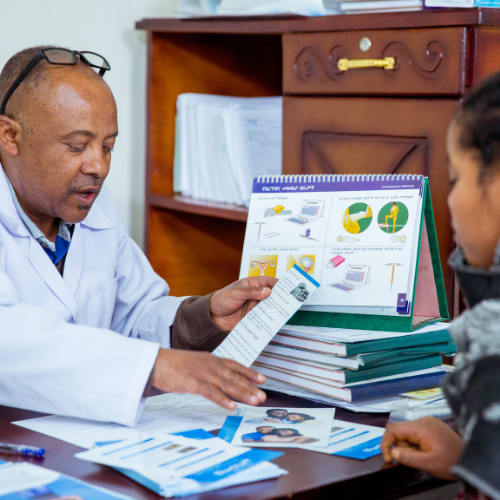Leveraging Social Accountability to Include Family Planning in Country-Level Universal Health Coverage: Four Lessons Learned from PAI’s UHC Engage Project

Over the past two years, under our UHC Engage project, PAI and civil society partners in sub-Saharan Africa and Asia have focused on the opportunities to advance sexual and reproductive health and rights, including family planning, as part of universal health coverage reform. The challenge is that universal health care is multifaceted and country-specific in nature. Decoding the policy and financing reform environment for each country is key to illuminating the openings that exist for civil society to engage policymakers to increase access to sexual and reproductive health services for everyone, especially women and girls.
The details of emerging policies at the country level are not widely available at the global and regional levels and the country briefs in our Decoding Country-Level UHC Financing Policy series fill this critical knowledge gap.
Ghana: Universal health coverage is not a new concept in Ghana. Between the late 1970s and early 2000s, the Ministry of Health introduced significant policy reforms to increase access to quality health care while ensuring a financial safety net from out-of-pocket spending. The 2015 sustainable development goals renewed energy to make new progress toward universal health coverage.
India: In 2018, India’s government launched Ayushman Bharat, the parent program of its Health and Wellness Centers and the world’s largest public health insurance scheme, Pradhan Mantri Jan Arogya Yojana. One of the largest challenges of this process is that many Health and Wellness Centers are not yet operational, which has exacerbated family planning access gaps in the public sector.
Kenya: In late 2018, Kenya’s national government unveiled a pilot program in four counties — Kisumu, Nyeri, Isiolo and Machakos — to expand access to health care and reach universal health coverage by 2022 so that every citizen has access to quality health services without facing high out-of-pocket payments.
Uganda: In Uganda, policymakers introduced a bill in 2019 to create a National Health Insurance Scheme — an important first step for the country’s universal health care financing agenda. Government officials have consulted civil society and local communities along the way to ensure a comprehensive foundation for the most significant health policy and financing reform in decades.
We are fighting back against the onslaught of harmful policies that discard reproductive rights.
Stay informed about the issues impacting sexual and reproductive health and rights.
